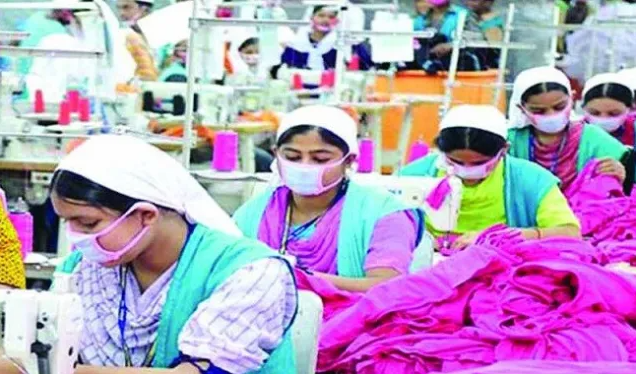The US government passed the Uyghur Forced Labor Prevention Act (UFLPA), which came into force on June 21, 2022. It allows US border authorities to practice greater powers to block or seize goods any product partly or wholly made in Xinjiang, an autonomous territory in northwest China, linked to forced labor in China.
Bangladesh’s apparel manufacturers said that they are in safe position and even will get some benefits as Vietnam’s apparel and footwear manufacturers are under pressure due to the US not clearing some of the Southeast Asian country’s consignments, citing Xinjiang cotton-made products.
Since 2017, the Chinese authorities have detained as many as one million Uyghurs and subjected them to forced labor.
According to media report, some Vietnamese enterprises have helped Chinese businessmen avoid US taxation or sanctions by using the cotton and exporting to the North American country. Finally, $15 million worth of apparel and footwear shipments held up for UFLPA checks, more than 80 per cent were from Vietnam, and only 13 per cent of its cargoes were cleared for entry, US customs data up to April 3 showed.
Many US importers are still sanguine, but their supply chains could still be disrupted as Vietnam’s apparel makers depend on China for about half of their input materials, media reports said.
Amid the situation, tension rose among the Vietnam apparel exporters and the US brands. Bangladesh’s readymade garment exporters are also worried as nearly hundred per cent cotton and a big portion of fabrics and yarn demand is met through imports, and a large volume came from China.
However, Bangladesh Garment Manufacturers and Exporters Association (BGMEA) President Faruque Hassan said that they are in safe zone because all apparel manufacturers are aware of the US sanctions against Xinjiang cotton.
“When the UFLPA law was passed, we sent a letter to all members to clarify the origin of cotton before import of raw materials from any country. Due to the US seizure of Vietnam’s clothes, Bangladesh will get advantage as the US buyers’ confidence will decline for importing goods from Vietnam.
“I am, however, asking all the apparel exporters to be more aware of importing raw materials, even if they import from other countries,” he added.
According to the United States Department of Agriculture (USDA), Bangladesh met its above 99 per cent of cotton demands through imports, and China may have a little share. However, China holds the country’s 59 per cent of fabrics imports share.
Bangladesh also meets its 12 percent of annual yarn imports demand from China.
Industry insiders said that they met nearly 85 percent of cotton-yarn demand through local sources and the rest of them have come from India, Turkey, Pakistan and other countries. China’s share is below one percent of the items.
Although the country holds a big share of Bangladesh’s yarn and fabrics import, this is mainly non-cotton. Bangladesh also imports some cotton-yarn from Indonesia and Vietnam, but they always checked the origin of the cotton, they claimed.
Besides, as the US is the largest export destination for Bangladesh, manufacturers are highly aware of the country’s rules and laws. That is why there is not any chance to face the UFLPA law.
Bangladesh Knitwear Manufacturers and Exporters Association (BKMEA) Vice President Fazlee Shamim Ehsan said, “We believed in trust and transparency and always kept our commitments. Now the US and other western buyers should come to Bangladesh with more orders as others failed to keep their commitments.
SOURCE: CLICK HERE

